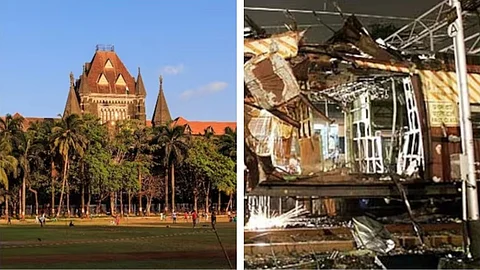

Mumbai | Nineteen years after seven train blasts here killed more than 180 persons, the Bombay High Court on Monday acquitted all the 12 accused, saying the prosecution utterly failed to prove the case and it was "hard to believe the accused committed the crime".
The court allowed the appeals filed by the accused challenging their conviction and sentences imposed on them by a special court in 2015.
Of the 12, five had been sentenced to death and seven to life imprisonment by the special court. One of the death row convicts died in 2021.
Maharashtra revenue minister and senior BJP leader Chandrashekhar Bawankule said the state government will assess the merits of the HC order, before deciding on whether to challenge it in the Supreme Court. Former BJP MP Kirit Somaiya said CM Devendra Fadnavis has spoken of approaching the Supreme Court at the earliest.
AIMIM president Asaduddin Owaisi sought to know whether Maharashtra government would take action against ATS officers who investigated the train blasts case.
The HC judgement comes as a major embarrassment to the Maharashtra Anti-Terrorism Squad (ATS) which probed the case. The agency had claimed that the accused were members of the banned outfit Students' Islamic Movement of India (SIMI) and had hatched the conspiracy with Pakistani members of terror group Lashkar-e-Taiba (LeT).
In a damning indictment of the prosecution's case, the high court declared all confessional statements of the accused as inadmissible suggesting "copying”.
Further eroding the credibility of the confessions, the court said the accused had established that torture was inflicted upon them to extort these confessional statements.
A special bench of Justices Anil Kilor and Shyam Chandak said the prosecution has failed to even bring on record the type of bombs used in the crime and that the evidence relied on by it was not conclusive to convict the accused.
The bench refused to confirm the death penalties imposed on five of the 12 accused and dismissed the confirmation appeals filed by the Maharashtra government.
Punishing the actual perpetrator of a crime is a concrete and essential step toward curbing criminal activities, upholding the rule of law, and ensuring the safety and security of citizens, the HC said in its 671-page judgment.
But creating a false appearance of having solved a case by presenting that the accused have been brought to justice gives a misleading sense of resolution, it added.
This deceptive closure undermines public trust and falsely reassures society, while in reality, the true threat remains at large. Essentially, this is what the case at hand conveys, the bench said.
The death row convicts were Kamal Ansari (now dead), Mohammad Faisal Ataur Rahman Shaikh, Ehtesham Qutubuddin Siddiqui, Naveed Hussain Khan and Asif Khan.
It had imposed life imprisonment on Tanveer Ahmed Mohammed Ibrahim Ansari, Mohammed Majid Mohammed Shafi, Shaikh Mohammed Ali Alam Shaikh, Mohammed Sajid Margub Ansari, Muzammil Ataur Rahman Shaikh, Suhail Mehmood Shaikh and Zameer Ahmed Rehman Shaikh.
The witness statements and alleged recoveries made from the accused have no evidentiary value and hence cannot be held as conclusive for conviction, the HC said while quashing the conviction.
Seven blasts ripped through Mumbai local trains at various locations on the western line on July 11, 2006, killing more than 180 persons and injuring several others.
"The prosecution has utterly failed to prove the case against the accused. It is hard to believe that the accused committed the crime," the HC said.
The HC said the accused shall be released from jail forthwith if not wanted in any other case.
The bench drew an adverse inference on the prosecution for failing to examine important witnesses in the case and also for poor and improper sealing and maintenance of the recovered items - explosives and circuit boxes allegedly used to assemble the bombs.
Discarding the confessional statements, HC said they seem to have been taken after torture was inflicted upon them and were incomplete and not truthful.
It is well known that, in most cases, police are in the habit of extorting confessions by illegal and improper means, including torture, the HC said.
The HC also held as not credible and non-trustworthy the evidence given by witnesses. These include people who allegedly saw the accused plant the bombs or assemble them.
The court also noted that the provisions of the Maharashtra Control of Organised Crime Syndicate (MCOCA) would not apply to this case and that sanction was granted in a mechanical manner without application of mind.
Chirag Chauhan, a survivor of the blasts who is now wheelchair-bound and a practising CA, expressed dismay over the acquittal of all the accused, and said "Justice got killed".
Gardening contractor Harish Powar, who has lived with the physical and emotional scars of the train bombings while waiting for closure, said the HC ruling is akin to rubbing salt into the wounds of the victims.
